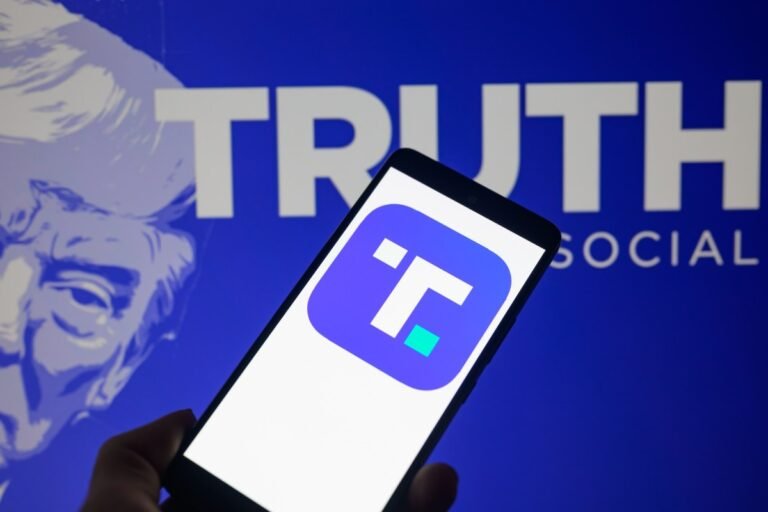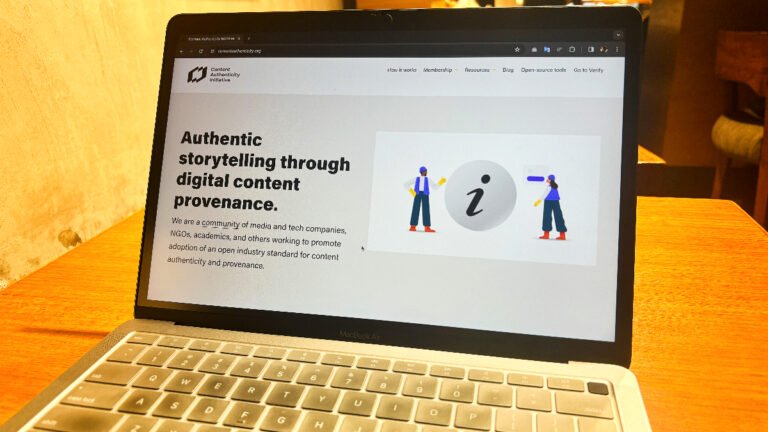
Traffic is down, newsrooms are undergoing layoffs, and publishers fear that AI technologies will only make matters worse.
Entering the fray, news reader startup Particle is teaming up with publishers to seek out a new business model for the AI era, where AI summaries of news don’t have to mean lost revenues.
Now, the company is bringing its first publishing partners into the mix to help it guide its next steps.
As a start, Particle now subscribes to Reuters newswire to help it deliver information about current events in the news.
What Particle isn’t yet ready to reveal is its business model.

New York’s state legislature has passed a bill that would prohibit social media companies from showing so-called “addictive feeds” to children under 18, unless they obtain parental consent.
The Stop Addictive Feeds Exploitation (SAFE) for Kids Act defines an addictive feed as one where the content is recommended or prioritized based on information about the user or the user’s device — basically, these are the algorithmic news feeds used by most social apps.
“Non-addictive feeds,” a category that includes “feeds listed in chronological order,” would still be allowed.
“New York is leading the nation to protect our kids from addictive social media feeds and shield their personal data from predatory companies,” Governor Hochul said.
It would also prohibit platforms from sending notifications related to these feeds between the ages of midnight and 6am without parental consent.

India’s election overshadowed by the rise of online misinformation Greater internet penetration and the rise of "cheapfakes" since the last general election in 2019 pose new challengesAs India kicks off the world’s biggest election, which starts on April 19 and runs through June 1, the electoral landscape is overshadowed by misinformation.
Misinformation is not just a problem for election fairness — it can have deadly effects, including violence on the ground and increase hatred for minorities.
“Ever since social media has been thriving, there is a new trend where you use misinformation to target communities,” he said.
The country’s vast diversity in language and culture also make it particularly hard for fact-checkers to review and filter out misleading content.
Moreover, just before the Indian election, Meta reportedly cut funding to news organizations for fact-checking on WhatsApp.

Truth Social, the social media platform owned by Donald Trump’s media company, has announced plans to launch a live TV streaming platform.
The streaming service will launch in three phases.
The company first plans to introduce Truth Social’s CDN (content delivery network) for streaming to the Truth Social app for Android, iOS and the web.
Next, Truth Social plans to release over-the-top (“OTT”) streaming apps for phones, tablets and other devices.
Truth Social went public last month after shareholders approved a merger of TMTG and Digital World Acquisition, a special purpose acquisition company (SPAC).

Meta has announced changes to its rules on AI-generated content and manipulated media following criticism from its Oversight Board.
So, for AI-generated or otherwise manipulated media on Meta platforms like Facebook and Instagram, the playbook appears to be: more labels, fewer takedowns.
“Our ‘Made with AI’ labels on AI-generated video, audio and images will be based on our detection of industry-shared signals of AI images or people self-disclosing that they’re uploading AI-generated content,” said Bickert, noting the company already applies ‘Imagined with AI’ labels to photorealistic images created using its own Meta AI feature.
Meta’s blog post highlights a network of nearly 100 independent fact-checkers which it says it’s engaged with to help identify risks related to manipulated content.
These external entities will continue to review false and misleading AI-generated content, per Meta.

India, grappling with election misinfo, weighs up labels and its own AI safety coalition An Adobe-backed association wants to help organizations in the country with an AI standardIndia, long in the tooth when it comes to co-opting tech to persuade the public, has become a global hotspot when it comes to how AI is being used, and abused, in political discourse, and specifically the democratic process.
Tech companies, who built the tools in the first place, are making trips to the country to push solutions.
Using its open standard, the C2PA has developed a digital nutrition label for content called Content Credentials.
It also automatically attaches to AI content generated by Adobe’s AI model Firefly.
“That’s a little ‘CR’… it’s two western letters like most Adobe tools, but this indicates there’s more context to be shown,” he said.

OpenAI captivated the tech world a few months back with a generative AI model, Sora, that turns scene descriptions into original videos — no cameras or film crews required.
So he launched Higgsfield AI, an AI-powered video creation and editing platform designed for more tailored, personalized applications.
In fact, Mashrabov sees social media — and social media marketing — as Higgsfield’s principle money-making niche.
So we believe video generative AI solutions will be a core solution in helping them to achieve it.”Of course, Higgsfield isn’t immune from the broader challenges facing generative AI startups.
It’s well-established that generative AI models like the kind powering Diffuse can “regurgitate” training data.

Former president Donald Trump’s digital media company is losing money, and lots of it.
But why is that any different from other “startups,” which often struggle to post a profit for years, if they ever do?
Truth Social, the main business of TMTG, has failed to attract more than a few million users.
Truth Social, the main business of TMTG, has failed to attract more than a few million users.
By the time Trump is able to sell his shares, it’s likely this company will be worth anything like what it supposedly is today.

When you sign up to a new social network, you have zero friend, zero follower, zero like.
A new app called Palmsy is trying to act as social media methadone by letting you post anything and getting likes on them.
While the app is reading your contact details, because all posts are local, contact information is not sent to a server.
There have been multiple time-limiting apps that try to help when it comes to reducing social media addiction.
Some developers have also released very basic apps to post dumb posts without consequences as well.

A federal judge sided against Elon Musk today, dismissing a lawsuit brought by Musk and X that targeted a nonprofit that researches online hate.
In the lawsuit, X claimed that it lost “tens of millions of dollars” as a direct result of the CCDH’s research.
Musk, who personally directed the lawsuit, called the CCDH “an evil propaganda machine” in replies on X.
The nonprofit, formed in 2018, researches trends in hate speech, extremism and misinformation on major social networks.
Unlike the CCDH lawsuit, X is suing Media Matters for America in Texas, which doesn’t share California’s protections against frivolous lawsuits designed to stifle free speech.













